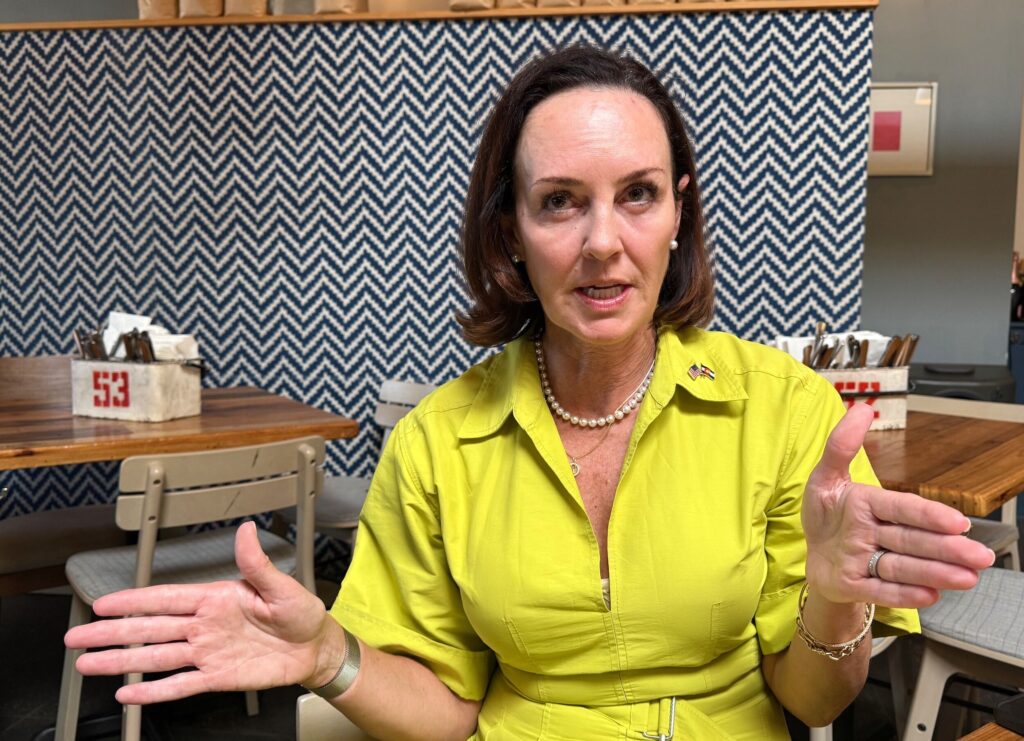TRAIL MIX | Concession wasn’t in the cards in this Colorado race

Colorado has seen its share of sore losers.
Customarily, when the results of an election are clear – sometimes on election night, sometimes in the following days, after all the ballots have been counted and cured and canvassed – the losing candidates concede the race and typically congratulate the winner, at times with a message of setting aside the campaign’s disagreements to tackle the problems ahead.
But that isn’t always the way it happens.
Among the hundreds of elections held every year in Colorado – a combination of primaries, general elections and runoffs – there are always a few losing candidates who defy tradition and skip the concession. Sometimes they fume that the voters were hoodwinked or the election was rigged, and sometimes they just fume, but they’re united in the cold shoulder they turn toward the candidate who beat them.
In the last dozen years, one candidate who lost an election in Colorado earned national headlines for her obstinate refusal to admit defeat – former U.S. Rep. Marilyn Musgrave, who was denied a fifth term in Congress in 2008 by Democrat Betsy Markey.
Nothing sticks in the collective political craw quite like refusing to concede an election loss.
In one sense, it doesn’t really matter, but in another, it’s fundamental to the whole system.
To be sure, concessions and congratulations don’t play an official part in any elections’ outcomes. Candidates who refuse to acknowledge that they’ve lost an election or skip the traditional phone call to the winner might get some bad press, but in most cases their unsportsmanlike reaction doesn’t prevent their successors from taking office.
But even though it might be a formality, conceding is also considered part of the glue that holds America’s civil society together. The ritual confers legitimacy on the transfer of power from one official to the next in a country that’s ostensibly governed by laws, not by the whims of the people entrusted, temporarily, with elected office.
Musgrave, the Fort Morgan Republican who waited nearly a month before even acknowledging publicly that she’d lost her seat, briefly became the poster child for sore losers in the aftermath of the 2008 election.
While she quickly landed on her feet – Musgrave has worked for Susan B. Anthony List since shortly after her term ended in 2009 and is currently the national anti-abortion organization’s vice president of government affairs – her reaction to the voters’ verdict landed Musgrave an extended turn in the spotlight as the days and weeks ticked by without the concession that never came.
After a brief stint on the Fort Morgan School Board in the early 1990s, Musgrave won election three times to the Colorado House of Representatives and then won a term in the state Senate. She easily won the open 4th Congressional District seat in 2002 and successfully defended it in two campaigns for re-election, though her winning margin decreased each time.
At one point pegged the most conservative member of the House, Musgrave’s unyielding opposition to gay marriage and abortion rights drew millions of dollars in campaign spending over the years from liberal opponents, including wealthy Coloradan Tim Gill.
In 2008, aided by Barack Obama’s 9-percentage-point statewide win, first-time candidate Markey ousted Musgrave by a whopping 12 percentage points, stunning the incumbent into a silence she would maintain for weeks.
Before its boundary was redrawn ahead of the 2012 election, Colorado’s 4th District wasn’t as overwhelmingly Republican as it is these days – Obama lost the district to McCain by just under a percentage point – but Markey’s win still counted as an upset, since it had been 36 years since the 4th CD had sent a Democrat to Washington. (Markey lost the seat in the next election by 11 percentage points to then-up-and-comer Cory Gardner.)
It couldn’t have come as a complete surprise, since polls had shown Markey with a lead for months, but on election night right after polls closed, Musgrave spoke briefly to supporters at a Greeley bar and grill but then, after the size of her defeat became apparent, left the building without another word.
By the end of the week, a spokesman for Markey’s campaign said the congresswoman-elect had yet to hear from Musgrave. “She has yet to admit defeat,” Ben Marter told The Denver Post. “It’s a little bizarre.”
Six days after the election, a producer at MSNBC’s Rachel Maddow’s show checked in on Musgrave, but a staffer at her congressional office hung up on him, Maddow told viewers. “Which tells us,” Maddow said during a segment about Musgrave’s post-election reaction, “Betsy Markey deserved to win that race on manners alone.”
Newsweek – which was still a thing in those days – took note a few days later, lumping Musgrave in with other politicians who didn’t take the results of the election well in a post entitled, “Nobody likes a sore loser. Even in Washington.”
As Thanksgiving approached and Musgrave remained out of sight, Politico dug in.
“[R]umors abound that no one has seen or talked to Musgrave since the brutal loss; she’s all but disappeared,” the Capitol insider publication’s Anne Schroeder Mullins reported, noting that Musgrave’s spokesman called her inquiry “a campaign matter” and said he would have no comment.
Markey’s campaign manager said her boss still hadn’t gotten a call but was “moving forward” with orientation for newly elected lawmakers.
Though Politico pointed out that conceding “is not only textbook but also mannerly to do,” Mullin suggested that Markey shouldn’t take it personally.
“Rumor has it she still – 14 days later – hasn’t even thanked her campaign staff.”
In a bit the next day recounting the Politico report, MSNBC piled on: “Stay classy, Marilyn Musgrave!”
Finally, nearly four weeks after the election, Christian News Wire brought word that Musgrave had in fact acknowledged she lost in a telephone message sent to voters in Georgia ahead of that state’s U.S. Senate runoff between incumbent Republican Saxby Chambliss and Democrat Jim Martin.
Part of an operation spearheaded by then-Alaska Gov. Sarah Palin, fresh off her loss as McCain’s running mate, the robocall from Musgrave went to 200,000 Georgians, reported The Coloradoan.
“Until last month I was the congresswoman from Colorado,” Musgrave said. “Leftist special interests from around the country poured money into my district to defeat me. They overwhelmed us with money. And they smothered the truth with vicious attacks and lies.”
Liberals targeting Chambliss were doing the same thing in Georgia, she continued, adding, “You can stop them with your vote. It’s too late to change the results in Colorado, but on Tuesday you can cast your vote for Saxby Chambliss.”














